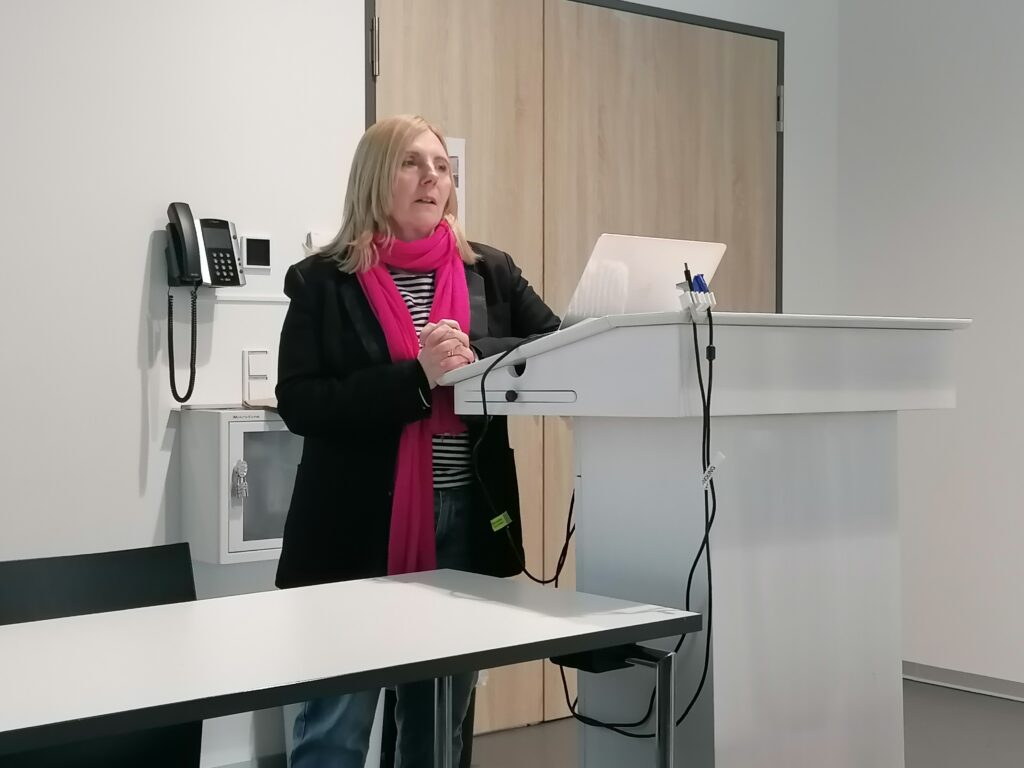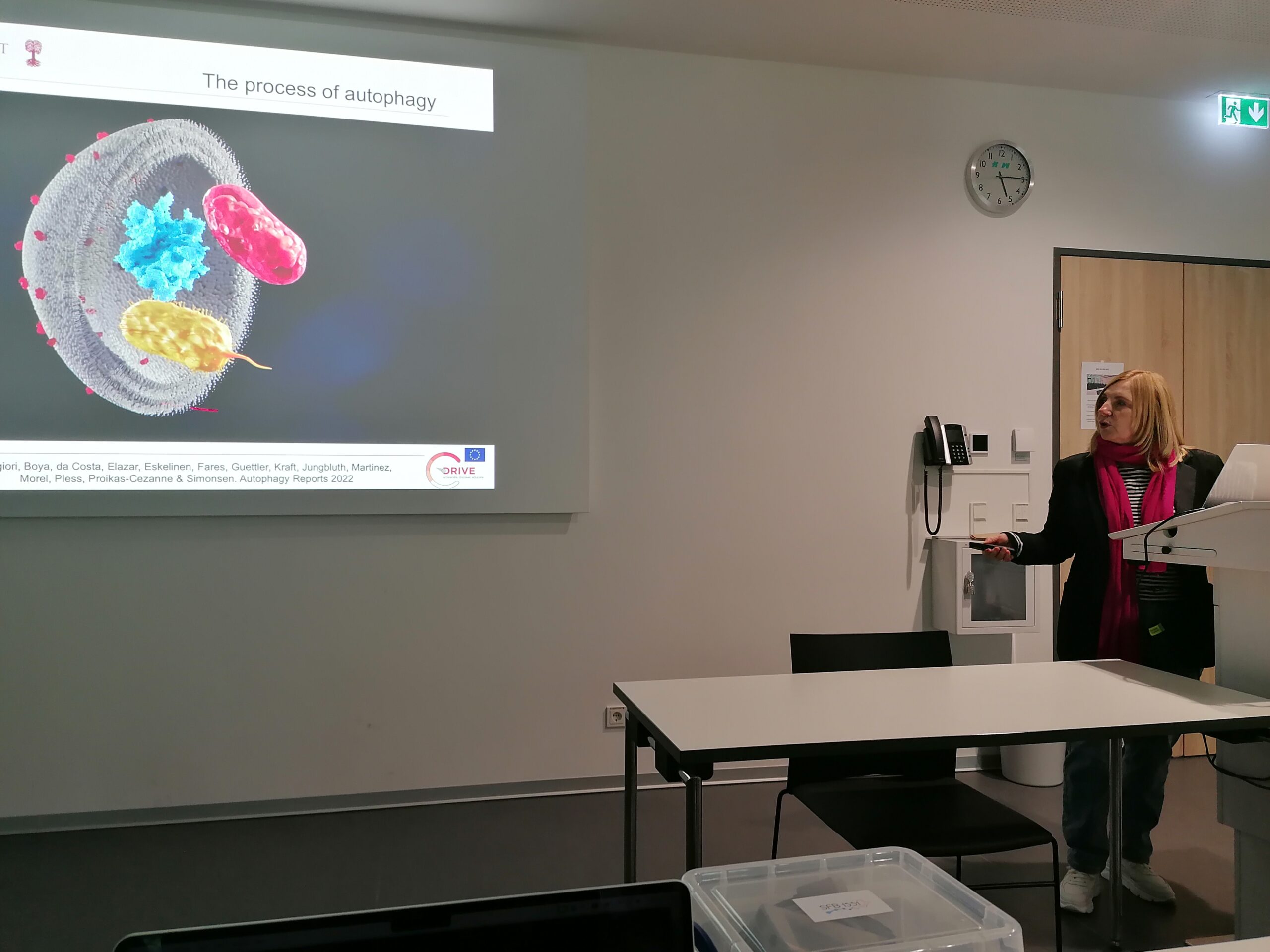On April 25th, we had the pleasure of welcoming Tassula Proikas-Cezanne, Proikas-Cezanne, from Eberhard Karls University Tübingen, to our Seminar Series. Her research focuses on the molecular mechanisms of WIPI-mediated autophagy in health, disease, and longevity. In her talk, entitled “A Role for WIPI Beta Propellers in Autophagy and Neurodegeneration,” she presented findings from her recently published article in FEBS Letters. Tassula detailed the main actors and steps in the autophagic process and highlighted the role of WIPI (WD-repeat protein interacting with phosphoinositides), which are part of the autophagyrelated protein family (PROPPIN). She also discussed her work on mitophagy, the autophagic process that selectively targets compromised mitochondria for lysosomal degradation, a process compromised in neurodegeneration, leading to the accumulation of damaged mitochondria. Here, WIPI1 and WIPI2 have been shown to be involved in Parkin-mediated mitophagy. Further, Tassula explored the connection between WIPI gene mutations and severe neurodegenerative diseases, including β-propeller associated neurodegeneration (BPAN), caused by mutations in WDR45 (encoding WIPI4) and characterized by high iron accumulation in the brain. Besides playing a crucial role in autophagosome formation by binding to specific phosphoinositides, WIPI β-propellers may also
have other important, yet unknown, roles in cell membrane processes. Understanding how WIPI functions are regulated is crucial for uncovering their roles in neurodegenerative diseases.
We look forward to promising updates from the Proikas-Cezanne Lab.


